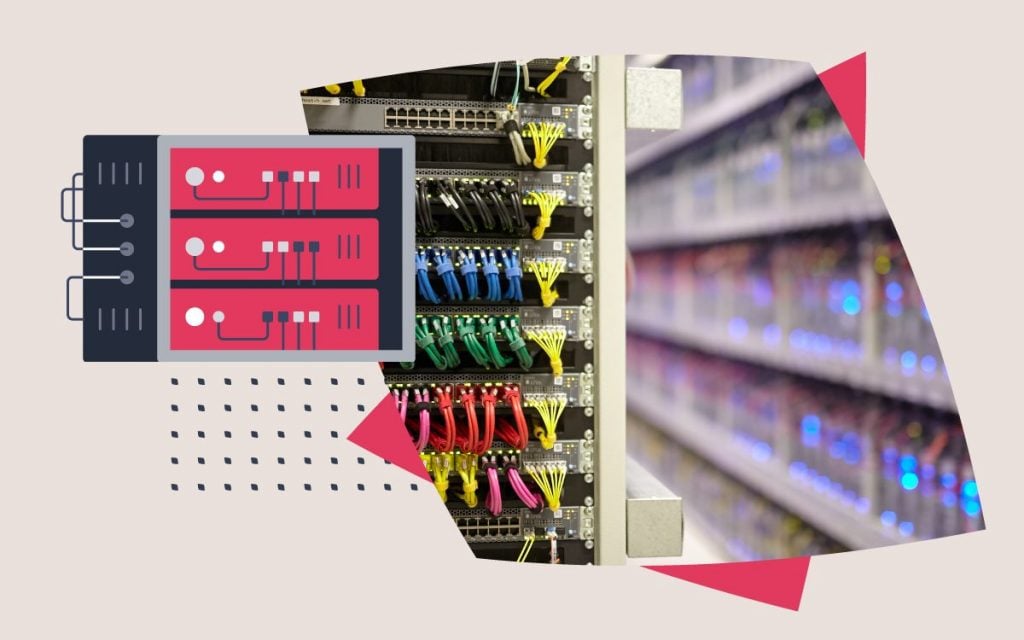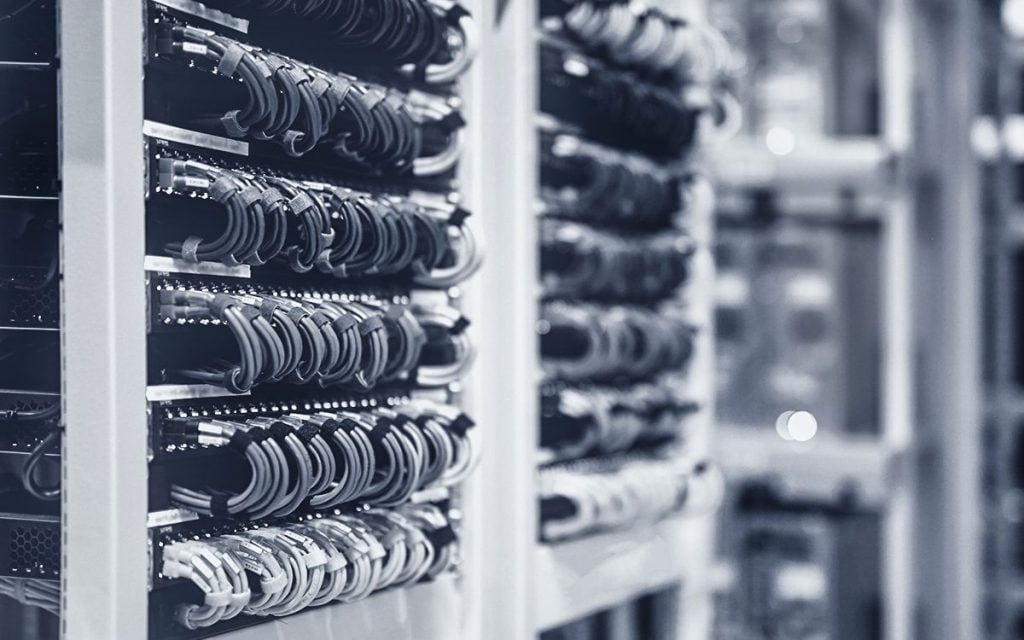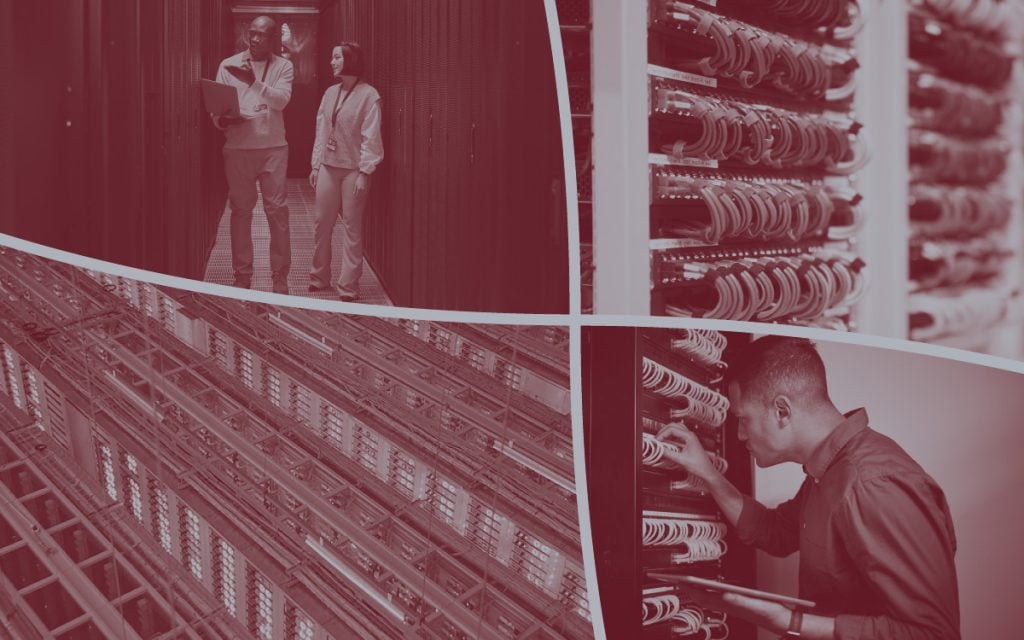A data centre is a facility that provides the physical infrastructure necessary for hosting and operating IT systems, hosting servers, storage, and network equipment. In other words, they are the powerhouses behind the services we use daily, and the muscle behind the tech businesses and digital enterprises that rely on them to function.
Data centres play a critical role in enabling online businesses to operate efficiently, securely, and to scale. In this article, we will outline the important role data centres play in the digital landscape, and how businesses can leverage their power to kickstart their growth.
Types of data centres
The layout, design and infrastructure of data centres are subject to strict guidelines and standards. This is to ensure a high level of availability and redundancy (a type of failsafe to avoid interruption) and to reduce the risk of accidents and failure. To qualify for certification, a data centre has to meet certain standards and criteria required for their size and level of availability they can provide, which puts them into one of four tiers.
These tiers are based on the standards issued by the Uptime Institute’s Tier Classification System and the ANSI/TIA-942.
- Tier 1: Basic infrastructure. Provides a basic level of availability. Low redundancy.
Tier 2: Redundant infrastructure. Provides a higher level of availability. - Tier 3: Concurrently maintainable site infrastructure – the facility can undergo maintenance without disrupting the operation of critical systems. High level of availability. Redundant distribution paths. Physical security.
- Tier 4: Fault-tolerant infrastructure. Provides the highest level of availability. Multiple levels of redundancy.
Internal design
Data centres are subject to exacting design and setup requirements to house and protect the IT equipment contained within. These environments need to be carefully climate-controlled, and have ample floor space to accommodate a large volume of servers, racks, networking equipment and other infrastructure. This floorspace needs to allow for sufficient cooling and future capacity needs. Data centres also require a reliable power supply and a generator or backup power to avoid downtime.
For many businesses, having the skills and infrastructure required to maintain a server is not possible. Data centres offer the space and capabilities to house servers, networking equipment and hardware (colocation) as well as the expertise to manage the hosting, storage and networking needs of their clients.
Energy efficiency
Making use of a data centre’s services and leveraging their expertise and energy-saving measures can radically reduce a business’s energy consumption. In the past, data centres accounted for 1% of global energy usage. This number has not increased much, in part due to a shift from smaller data centres to larger, more efficient data centres that employ energy-saving measures and optimised cooling methods, as well as an increased demand for colocation services.
Xneelo’s data centre in Samrand was constructed according to an award-winning green building design. Its setup and server rack positioning were designed to reduce the power needed to maintain a cool server environment. The high-density design efficiently manages available floor space, allowing the data centre to run leaner.
Read how our data centre remains climate-friendly here.
Services offered by a data centre
From small businesses wanting to outsource their data storage and backups, to larger enterprises with a large amount of digital assets and deployment needs, data centres offer a multitude of services that range from hosting services to data storage and network connectivity.
IT Solution company Symlogia, based in Midrand, for example, leverages a Managed Server within the xneelo data centre to offer reliable IT solutions and cloud migration services to its clients with very little overhead. Another managed server customer, Cartmell & Cartmell, benefits most from the power and uptime provided.
Data storage and processing
Many online businesses rely on data centres to process large volumes of data quickly and efficiently. They can also be used to store data safely and securely.
Internet exchange points (IXP)
These are the physical locations where ISPs and CDNs connect. IXPs are crucial for smooth internet traffic. They help in the direct exchange of data between different networks without relying on a middleman or transit provider which can result in slower performance and delays caused by data having to travel long distances. Connecting to a local IXP can optimise the path for data within its network, making it faster and more efficient.
By connecting to multiple networks and service providers within a data centre, businesses can achieve faster and more reliable network performance.
Hosting services
Data centres offer a range of hosting services to support the diverse needs of businesses. These can range from dedicated servers, cloud hosting, colocation and managed hosting services.
Xneelo’s data centres, for example, house the servers and colocation areas that form part of our product offering including our shared hosting services, pre-configured Managed Servers, and Self-Managed Servers.
Support
An important service offered by a data centre is the skilled technicians, engineers and maintenance teams responsible for maintaining and monitoring the IT equipment in their charge. Many businesses rely on data centre personnel’s technical expertise to ensure the continued performance and reliability of their hardware or network.
The data centre landscape in South Africa
Revenue in the South African data centre market is predicted to reach R24 billion in 2028 ($1.27 billion.) This is impressive for a country like South Africa where the overall capacity of the data centre industry stands at around 434.86 MW – growing at a rate of 13.77% per year (Mordor Intelligence).
South Africa is uniquely positioned to foster this growth. Our telecommunications infrastructure is well developed, with undersea fiber optic cables providing reliable and seamless connectivity to global networks. This also empowers the growth of digital businesses and their ever-increasing demands on data storage and performance.
Read more about xneelo’s carrier-neutral, fully redundant data centre here.









